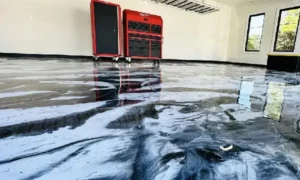Introduction
In the intricate web of modern business operations, seemingly minor elements can have a profound impact. Among these, ice – a simple commodity – stands out for its versatility and importance in a range of industries. From restaurants to healthcare facilities, ice serves not just as a cooling agent but also as a vital component for various applications. This recognition has paved the way for the development of commercial ice machines, specialized appliances designed to cater to the unique demands of businesses. In this comprehensive article, we will navigate through the realm of commercial ice machines, exploring their types, benefits, maintenance, and critical considerations for making an informed purchase decision.
I. Types of Commercial Ice Machines
- Cube Ice Machines: Versatile ClassicCube ice machines are the stalwarts of the ice-making world. They produce clear, slow-melting ice cubes that find their place in a multitude of beverages due to their ability to chill without diluting. The symmetrical shape of these cubes enables efficient storage, minimizing clumping. Their versatility makes them suitable for various establishments, including bars, restaurants, and convenience stores.
- Nugget Ice Machines: Soft and FlavorfulNugget ice, also known as chewable ice, has captured hearts with its soft texture and exceptional ability to absorb flavors. This type of ice is popular in healthcare facilities and fast-food chains, where it contributes to enhanced customer experiences. Nugget ice machines create small, cylindrical ice pieces that redefine the art of sipping.
- Flake Ice Machines: Aesthetic Appeal in Ice FormFlake ice machines churn out delicate, flat ice flakes that serve both functional and aesthetic purposes. Widely used in seafood displays, food presentations, and medical applications, these moldable ice flakes offer unique visual appeal. Their pliability makes them valuable in industries where form and function converge.
- Undercounter Ice Machines: Space-Conscious WarriorsWhen space is at a premium, undercounter ice machines step in as the solution. Compact and designed to fit beneath countertops, these machines cater to the needs of small cafes, bars, and office kitchens. They bring efficiency to tight spaces without compromising on ice production capabilities.
- Modular Ice Machines: Powerhouses of Ice ProductionFor establishments with consistently high ice demands, modular ice machines emerge as the champions. Their ability to churn out substantial quantities of ice makes them indispensable in hotels, event venues, and other high-volume settings. Modular ice machines can be paired with ice storage bins or dispensers for seamless operations.
II. Benefits of Commercial Ice Machines
- Reliable Ice SupplyOne of the most significant advantages of commercial ice machines is their ability to provide a steady and reliable supply of ice. This reliability is essential for businesses that experience fluctuating demand throughout the day.
- Tailored Ice ProductionBusinesses can choose the type of ice they need based on their specific requirements. From the classic clear cubes to the chewable nuggets, commercial ice machines offer customization options that align with diverse needs.
- Time and Labor EfficiencyTraditional methods of ice production are not just time-consuming but also demand substantial labor. Commercial ice machines automate this process, freeing up valuable human resources for more critical tasks.
- Hygiene and Safety AssuranceHygiene is paramount in any food-related business. Commercial ice machines are designed with features like antimicrobial materials and self-cleaning mechanisms to ensure that the ice produced is safe for consumption.
- Cost-EffectivenessWhile the initial investment in a commercial ice machine might seem significant, the long-term cost savings are noteworthy. Businesses can eliminate the need for purchasing bagged ice and, instead, produce ice at a lower cost per unit.
III. Factors to Consider Before Purchasing
- Nature of BusinessThe type of business you operate plays a pivotal role in determining the most suitable ice machine. High-end restaurants may lean towards classic clear ice, while establishments like fast-food joints might prefer the soft chewable nugget ice.
- Ice ConsumptionAccurately calculating the average daily ice consumption is critical. Selecting an ice machine with an appropriate production capacity ensures that there are no shortages during peak hours.
- Space AvailabilityPhysical space constraints must be considered before purchasing an ice machine. The available space dictates the type and size of the machine that can be accommodated.
- Water QualityWater quality directly affects ice quality and the machine’s lifespan. Investing in a water filtration system might be necessary to maintain both ice quality and the machine’s longevity.
- Maintenance ConsiderationsRegular maintenance is key to the optimal performance of commercial ice machines. Look for machines with features such as easy-to-clean designs and removable parts to facilitate hassle-free upkeep.
IV. Maintenance of Commercial Ice Machines
- Scheduled CleaningRegular cleaning prevents the accumulation of mineral deposits and mold, which can compromise ice quality. Following the manufacturer’s recommended cleaning schedule and using approved cleaning agents is essential.
- Sanitization PracticesScheduled sanitization ensures that the ice remains safe for consumption. This practice is especially crucial in environments like healthcare facilities.
- Ensuring Airflow and VentilationProper airflow is crucial for preventing overheating and ensuring the machine’s efficiency. Checking and maintaining ventilation systems is vital for the machine’s overall health.
- Component InspectionRegularly inspecting door seals and other components for wear and tear can prevent air leaks, which can impact ice production efficiency.
- Professional MaintenanceWhile basic cleaning can be managed in-house, engaging professional technicians for periodic maintenance is vital. Their expertise can identify and address potential issues before they escalate.
V. Conclusion
Commercial ice machines, seemingly unassuming additions, play a significant role in various industries. Their contribution ranges from ensuring chilled beverages to preserving delicate items. A comprehensive understanding of available types, associated benefits, and essential considerations for purchase is crucial for making informed decisions. Regular maintenance further ensures that these machines continue to produce ice efficiently, keeping businesses smoothly operational. Whether it’s a bustling restaurant or a compact café, a well-selected ice machine holds the potential to elevate operations and enhance customer experiences. The world of commercial ice machines is a testament to how even the simplest elements can have a profound impact on modern businesses.






























